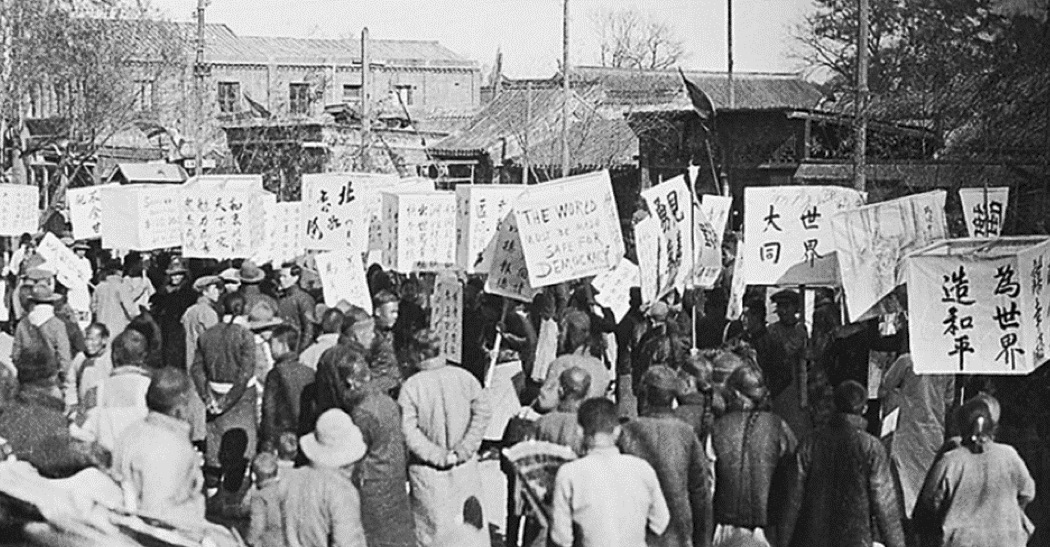China Research Seminar Series talk given by Dr Rong WU, University of Cambridge
China’s experiences at the Paris Peace Conference at the end of WWI have become an integral part of the country’s discourse on its ‘century of humiliation’. The failure to retrieve German rights in Shandong, which were transferred to Japan under the Treaty of Versailles, is thought to have triggered the May Fourth Movement.
While numerous works have examined the bargaining, networking and negotiations that took place in the grandiose halls of Versailles, as well as the speeches, protests and strikes in the streets of Beijing, much less attention has been paid to a key link connecting these two arenas: the Chinese delegation’s decision to launch an open diplomacy campaign via the mass media – in particular newspapers and circular telegrams (通电).
This talk will try to answer this question: if the request for the direct return of Shandong was made based on the ‘public opinion’ of the Chinese people, as diplomats and politicians at the time claimed, how, then, was this public opinion formed?
Rong WU (吴蓉) is a Junior Research Fellow at Wolfson College and a Chiang Ching-kuo Postdoctoral Fellow at the Faculty of Asian and Middle Eastern Studies, University of Cambridge. She obtained her BA and MA in International Relations at Peking University before getting her Ph.D. in modern Chinese history at Cambridge.
She is currently working on a monograph temporarily titled The Restless Republic: Confronting the Great War in Early Republican China, 1914–1919, and has two forthcoming articles in Modern Asian Studies and the Leiden Series of Comparative Historiography.
| Contact |
|---|
| Professor Adam Yuet Chau: ayc25@cam.ac.uk |

